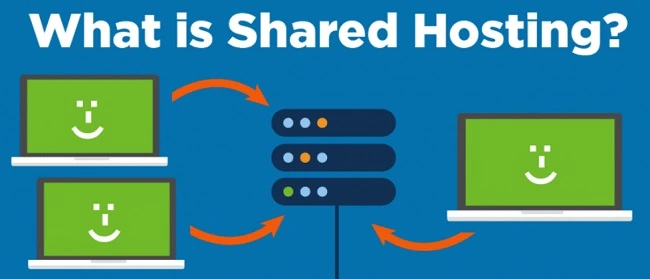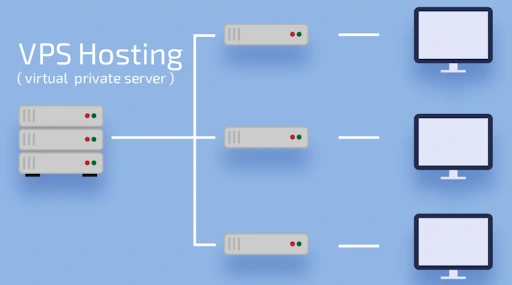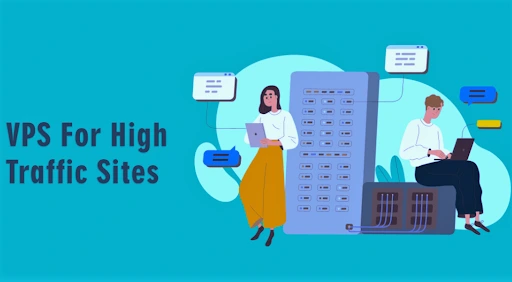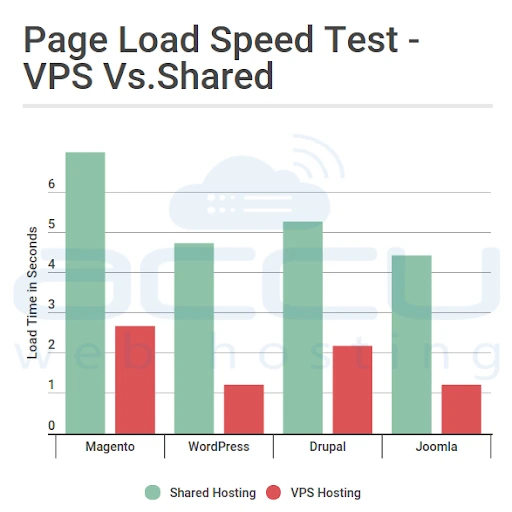Do you have a growing website and still use shared hosting for it? Have you noticed any performance-related issues with your website due to a lack of server resources? If yes, it might be time to upgrade to VPS hosting.
Table of Contents
But before you do that, it is wiser to check whether VPS hosting will resolve your problems. Here we’ll discuss the situations you must consider upgrading from shared hosting to VPS hosting.
Shared vs VPS Hosting Overview
Before delving any deeper, let’s have an overview of shared and VPS hosting for those who are unaware of it.
Shared Hosting
A single server hosts dozens of websites, distributing the server resources and maintenance costs among them. In this case, your website will share the resources like disk space, RAM, etc., with other websites on the same server.
A good shared hosting plan might also provide you with unmetered bandwidth and unlimited storage like the ones offered by HostGator plans. So dig deeper to find the best value for your money!
Virtual Private Server (VPS)
A VPS is a mix of shared and dedicated server environments. Here a server hosts multiple websites like shared hosting, but a dedicated virtual compartment is created for each website as in the case of dedicated hosting.
So in VPS hosting, your website receives a fixed amount of server resources. You’ll also have more freedom due to better control over your server.
Best VPS Use Cases
Shared hosting is sufficient for new websites with lower content and traffic. But upgrading to VPS hosting would be a better choice as your website grows.
However, if you are building any of these websites, consider using VPS for them to get the best performance from the beginning:
- eCommerce Websites
- News Portals
- Business Websites
- Web Applications
- Popular Personal Blogs
When to Upgrade Your Shared Hosting to VPS?
Now that you are aware of the best use cases of a virtual server, let’s look at the situations when you should upgrade your shared hosting to VPS:
Traffic increment
Shared hosting is suitable for websites receiving low to moderate traffic. But when you start receiving a large amount of traffic on your website, consider upgrading your hosting plan to VPS.
Better SEO ranking
Search Engine Optimization (SEO) is essential to the growth of any website. Though your website ranking will largely depend on the efforts you put into optimizing your content, the type of hosting you use can also impact it.
You share your IP address with several other websites on a shared server. If any of these sites are into spamming, your website will never get into the search results. Also, websites on a shared server are generally slower due to sharing of resources, and there is always a risk of downtime.
On the other hand, a VPS provides you with your unique IP address and allocated resources. It results in better speed, reliability, and, hence, improved website ranking. So if you are serious about SEO, upgrade to a virtual server.
Server customization
It is impossible to customize a shared server since many other website owners utilize it to host their sites. You will have to use the server with its initial software and hardware configuration.
A VPS, on the other hand, allows you to install your choice of Content Management System (CMS) and make other desired changes. So when you want the flexibility to customize your server, it is time to upgrade!
Speed improvement
As mentioned above, websites on a shared server are slower than the ones on a VPS. So if you are facing any speed-related issues on a shared server, consider upgrading to a virtual one. Thanks to allocated server resources, you will notice a faster loading speed when using a VPS.
Extra storage
Though all shared hosting plans offer some amount of storage, it might not be enough for a growing website. So when you want more storage to keep your website data and files, it is time to upgrade to a VPS.
Server access
You do not receive administrative access to a shared server since it also hosts dozens of other sites. If you need full administrative access to your website server, upgrading to VPS will be the right option.
With a VPS, you get control over the virtual container built specifically for your website. Other websites won’t get impacted by the changes you make, so you are free to use it the way you want.
Dedicated IP address
Shared hosting assigns the same IP address to multiple websites. So your website will have the same IP as some other websites on the same server.
Sharing your IP with others can harm your website’s reputation if those other website owners are involved in malpractices. So having a unique IP address is always a good idea.
You must consider upgrading to a VPS hosting plan if you need a dedicated IP for your website. Since a virtual container is completely isolated from other containers on the server, you will receive a unique IP to identify and distinguish your website and activity from others.
More security
A shared server hosts dozens or even hundreds of websites. Some of these website owners might be involved in malicious activities, or any of these websites can become a target to hackers. In either of these cases, your website is at risk of getting attacked.
With a VPS, your website is fully isolated from the rest, making it much more secure than the neighboring websites. Also, an attack on a neighboring website won’t let the hacker enter your site. So upgrading to a VPS is recommended when you need more security.
eCommerce website
An eCommerce website is content-rich with loads of product images, needing more space and bandwidth. It also carries out financial transactions and stores sensitive customer information, demanding more security.
A shared server cannot offer the above features, so if you turn your website into an eCommerce store, shift it to a VPS. A virtual server will provide the necessary resources, including bandwidth, space, and security, to run an eCommerce website safely and efficiently.
What are the advantages of shared hosting?
Shared hosting is generally the best hosting choice for beginners because of the following reasons:
- It is the cheapest form of web hosting and can help you launch a website for only a few dollars per month.
- It is beginner-friendly since you don’t need any server knowledge to get started. The hosting provider is responsible for maintaining and managing the server.
- Shared hosting offers resource flexibility since no one gets allocated server resources. So you are free to utilize them flexibly as long as you do not bother your neighboring sites.
What are the disadvantages of shared hosting?
In addition to the numerous benefits, shared hosting also carries some disadvantages:
- It comes with unallocated resources, so your website performance depends on the activities of hundreds of other website owners on the server.
- A website on a shared server loads slowly and can also experience crashes due to server overload.
- A shared hosting environment offers the least security among all hosting types. Your website is more prone to attacks when hosted on a shared server.
- Shared hosting is incapable of handling high volumes of traffic.
- You will share your IP with many other websites on the same server.
What are the advantages of VPS hosting?
VPS hosting is a level above shared hosting in terms of its features. Here are some VPS advantages you will receive:
- VPS comes with allocated server resources, so your website’s performance remains consistent without getting impacted by other websites.
- You can customize server configuration as per your needs.
- A VPS is capable of supporting higher traffic volumes.
- Because of complete isolation, a virtual server provides better security to your website.
- VPS hosting comes with a unique IP address.
- VPS hosting offers reliability because of isolated server environments. Your website won’t experience a crash even if other websites on the same physical server use more resources.
- It is very simple and easy to scale up and down your server resources depending on the changing needs of your website.
- You can get managed or unmanaged VPS hosting plans based on your needs.
<
What are the disadvantages of VPS hosting?
VPS hosting also comes with some disadvantages, which are listed here:
- It is an expensive hosting type for your website. You will have to pay higher monthly costs than shared hosting. Buying a managed VPS plan costs you even higher.
- VPS hosting does not offer full control over the physical server, as in the case of dedicated hosting. If you want to change the physical server, upgrading to a VPS will not solve the purpose.
- Managing a VPS requires technical knowledge. You must know how to manage a server, hire an expert, or invest in a managed VPS.
Conclusion
Shared hosting is an excellent choice for beginners, but upgrading to a VPS is essential as your website grows. VPS hosting offers better security, reliability, speed, uptime, and performance for your website when compared to shared hosting.
If you consistently notice a shortage of server resources on a shared server, consider it a warning to upgrade to a VPS. However, it is advised to shift your website to a virtual server when it consumes 70-80% of server resources to prevent business loss.
FAQ (frequently asked questions)
Is VPS faster than shared hosting?
Yes, VPS is faster than shared hosting. The overall server load decides the speed of your website in the case of shared hosting.
On the other hand, a VPS provides you with allocated server resources that are available only for your usage. So the overall burden on the server does not impact your speed. It is how VPS offers better speed than shared hosting.
Is Shared Hosting Better for SEO?
Shared hosting is not a good choice for SEO, but VPS surely is.
When using a shared server, you will share your IP address with multiple other websites. If a website using the same IP as yours gets involved in spamming or other unscrupulous activity, it will negatively impact your website.
Google bans such IP addresses and stops showing them in search results. So your SEO efforts might get wasted without any of your faults.
It is not the case with VPS since you will receive your unique IP address. So a VPS is better for SEO.
Which is better – VPS or a dedicated server?
Features-wise, a dedicated server is better than a VPS. But is it good for you? It depends on your server resource requirements.
A dedicated server is a step above the VPS in terms of features. Compared to a VPS, it provides more server resources, better security, full control over the physical server, flexibility, and customization. But all these additional features come at a much higher price than a virtual server.
Invest in a dedicated server only when you need more resources than the ones offered by a VPS.
How Many Websites Can You Host on VPS?
A VPS allows you to host as many websites as you wish. You are free to use the resources allocated to your server in any manner. Whether you utilize all your server resources on a single website or multiple ones is up to you.







